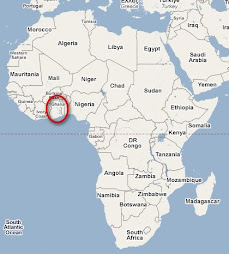Of course, not everything is running perfectly here. There are many difficult, complex challenges with the work we are trying to do. One of the overarching challenges that I see is that the farmers themselves are lacking ownership and responsibility in this project. There are probably many causes for why this is, and they all overlap, but I have come up with some hypothesis that I would like to test out before I leave.
Most of the projects that are carried out in this region are run by NGO’s (non-governmental organizations). Often with NGO’s, the stakeholders are constantly changing and the projects have a short life-span because there are so many funders involved and they all want things to be done their way. Many development projects in this region have eventually collapsed and the people are left with half-finished equipment and facilities that are never used. I don’t want to generalize NGO’s or give them a bad name, I am just trying to share one of the challenges I see to illustrate my point.
With ITFC there is someone who has invested millions of dollars in the project and he will not see a profit for at least another 10 years. He wants to make money in the end, but he wants Ghanaians to make money with him. In order for this project to become economically viable, there are certain targets that we have to reach and we are in it for the long-haul. I think that ITFC addresses some of the challenges I see with NGOs; the stakeholders in this company have a long-term investment and demands and expectations are not coming from too many outside investors. I think that this set-up also brings additional challenges. Because the company must meet certain targets and demands to make this project viable, they must find a way to meet them even if it is not the best way for the farmers.
Here is an example: When the field assistants are to prune the mango trees, they are supposed to be working side by side with the farmers who own that acre of trees and teaching the farmers how to do it themselves. Often the farmers never show up to the field and the field assistants prune the trees for them. It would be best (in my opinion) if the field assistants refused to prune the trees if the farmer does not show up. But in reality, the trees have to be pruned because we are trying to reach a certain yield at the end of the season. If we never reach the desired yields, then this project will never be profitable.
I have noticed that the farmers do not really have an understanding of the business aspect behind this entire project. We have an accounts office that keeps records and handles all of the farmers’ finances, and the managers are responsible for making the big business decisions. From what I have read about development work, the most successful projects are those where the idea originates from the community and the people carry everything out themselves. But sometimes, I think the obstacles are too large and the people need a little help to get started. ITFC provides the farmers with an interest free loan account, organic certification, access to the international market, and technical service. It would be almost impossible for a farming group to accomplish all this on their own. The downside to ITFC providing all this for them is that the farmers don’t have to figure it out on their own; they can rely on the company.
As I said earlier, I want to test this hypothesis and give the company an idea of how they can begin to address this challenge. I want to hold a meeting with one of the farmer groups and explain to them in terms they understand (hopefully) the financial benefits of using drip irrigation. I hope that the farmers will benefit from understanding the business aspect behind the company’s decision to switch to drip irrigation, and that they will be more excited about this new technology and want to take more responsibility in maintaining it. Luckily, this idea fits in with my original work-stream and keeps the focus on drip irrigation.
The meeting will be held Friday, August 8th right after the farmers go for prayers. Some of the managers will be present so I can test out how receptive they are to this idea and if it is something they would like to pursue further. Ill let you know how it goes in my next post. Wish me luck!
So this all makes sense in my head, but please let me know if it is unclear or if you have any questions. Other than finishing up the trainings and holding this farmer’s meeting, I am pretty much wrapping up my work here. I only have 2 weeks left! I will write a final report to both EWB and ITFC on what I have done these past 3 and half months. I also want to do a good job wrapping up my personal relations with everyone here at the office, and of course with those in my host community. If you are still with me, thanks for reading! Here are some pics from the trainings I held this past week.
I took this at the end of one of my trainings; I think it'll be a nice pic for the EWB office at McGill - those are mango trees in the background

For the beginning of the training I gave an overview of the irrigation system and discussed the content of the user manuals I developed





No comments:
Post a Comment